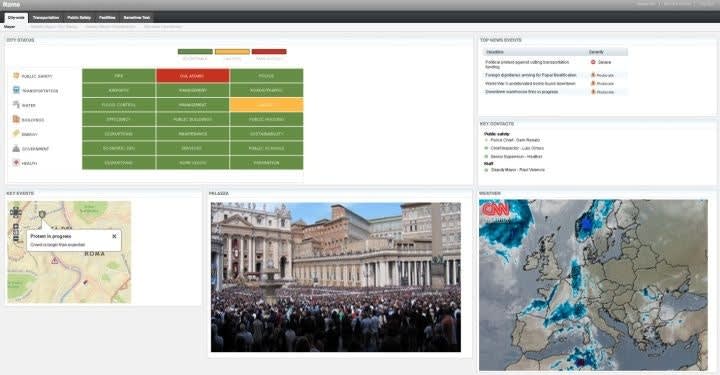As IBM celebrates its centennial, the company announces its latest offering benefiting public safety. IBM Intelligent Operations Center for Smarter Cities (IOC) is "a new solution designed to help cities of all sizes gain a holistic view of information across city departments and agencies...by infusing analytical insights into municipal operations...to better anticipate problems," according to today's press release.
Mark Cleverley, Director, Public Safety Solutions, IBM Global Government Industry, gave POLICE Magazine some insight into how this new solution will benefit law enforcement.
"We're on the verge we think of a period where cities are going to start thinking differently about their public safety information, and other information from other systems like transportation and water and perhaps social services," says Cleverley. He says the IOC will help a city, and law enforcement in particular, utilize high-tech algorithms to harness and analyze information collected via databases, surveillance cameras, and even audio and weather sensors.
Initially, a dashboard of such information from various city departments would be made available to the police chief or senior officers in or around the Intelligent Operations Center building, Cleverley tells POLICE. "But you could envisage over time, parts of information going to officers in vehicles, to handheld devices," he says.
Patterned in part after the NYPD realtime crime center, the IBM IOC is intended to analyze and distill data to provide timely information relevant to the individual officer.
"Video analytics can use high-powered algorithms that interpret information to provide alerts, becoming more automated over time. You could see a vehicle going down a street the wrong way and get an alert. Or get an alert if someone walks away from luggage and doesn't come back to it at an airport. There are also algorithms that help with crowd estimation."
While this solution is currently structured for use by larger municipalities, it might be possible in the future to provide such services to a collection of smaller cities or even several law enforcement agencies located geographically near each other so they can share and analyze information more efficiently.
"We would hope over time to provide a way for smaller cities with less funding to also start to create that type of capability with the IOC," Cleverley added.
Cleverley wants to make clear that the IBM IOC is not intended to replace any systems already in place in cities, but to enhance the ability for information about city systems to be shared and analyzed across an entire municipality for better planning and response.
"It's about getting people to work together in unique ways."
For more information, visit the Web site for IBM Smarter Cities.













